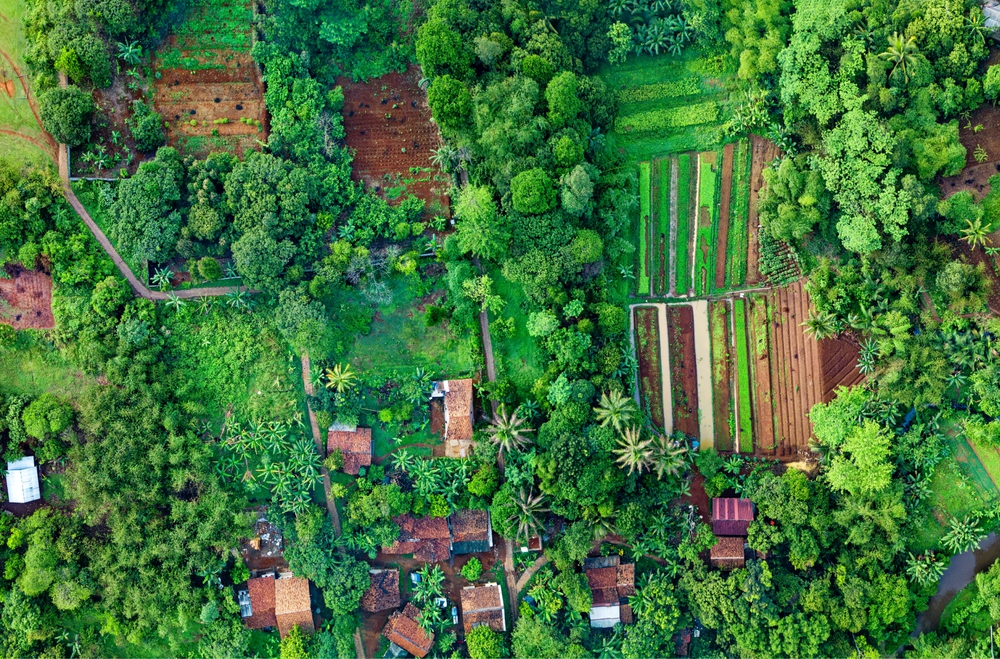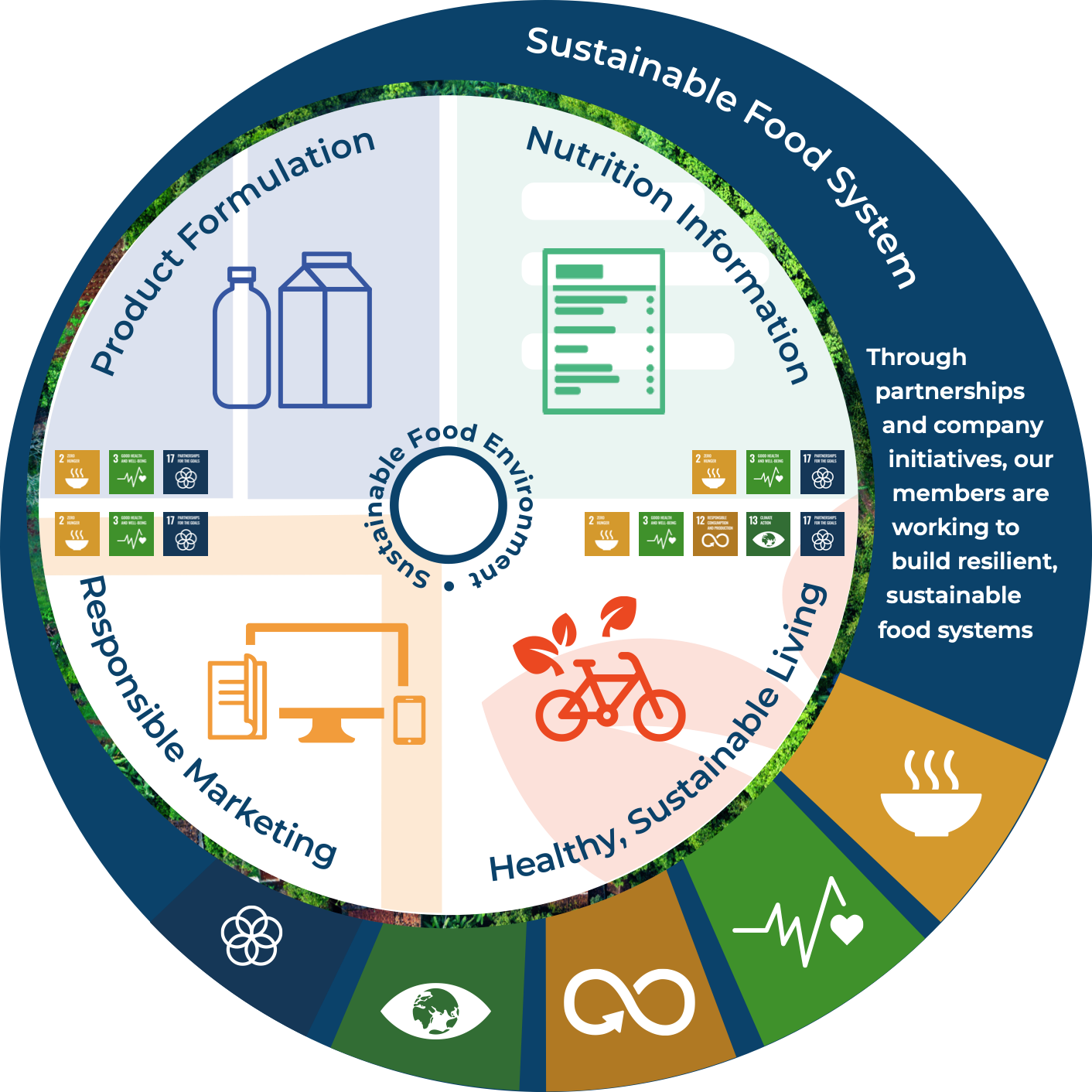

Through our commitments and partnerships, we support an integrated approach to advancing the United Nations Sustainable Development Goals (SDGs) and achieving the ultimate goal of a better, more sustainable and peaceful world for all.
The SDGs aim not only to end poverty and hunger, reduce malnutrition, and improve public health but also to ensure that all people, at all times, have access to safe, sufficient and nutritious food. As leading food and beverage manufacturers, we recognize our responsibility to help end hunger and feed a growing global population. We know we have a primary role in contributing to shape the food environment through improved nutrition, expanded food access and responsible marketing, and that is where we focus our collective work as IFBA.
Beyond the core work of IFBA, our member companies are contributing to the SDGs more broadly, both through individual work and partnerships, to make the global food system more sustainable throughout their supply chains, from sustainable sourcing and agriculture to reducing food loss and packaging waste.


Shaping a Sustainable Food Environment
A sustainable food environment connects diet and nutrition to the systems that produce food, ensuring that consumers have access to healthy options and can make informed choices about their diets. By continuing to improve our products, providing clear and comprehensive nutrition information, and restricting marketing to children, our commitments shape a sustainable food environment that empowers consumers to eat balanced diets and live healthier lives.
Good health and nutrition lie at the heart of the SDGs. Our commitments directly support the goals of zero hunger (SDG 2) and good health and wellbeing for all (SDG3), but nutrition and health are essential to comprehensive progress on the 2030 Agenda. Improving food security gives children a better chance at success in school and contributes to stable and peaceful societies where economic growth, gender equality, and environmental health can flourish.


Working towards a Sustainable Food System
By 2050, the global population is expected to grow by 2 billion people. But the global food system faces significant challenges that will impact its ability to meet the needs of this growing population. From agricultural practices that cause deforestation, to water scarcity and pollution, to climate change that affects food production and reduces the yield and nutritional quality of crops, these systemic challenges will increase the likelihood of food shortages, shocks to supply chains and exacerbate food price volatility.
Creating a healthy, sustainable food system that can overcome these challenges will require the collaboration of all stakeholders – policymakers, civil society, industry, and consumers – an innovative, evidence-based approach and an integrated set of solutions across multiple sectors. And we are ready to do our part.
We are leveraging our scale where it can have the greatest impact to build a food system that delivers food security and nutrition, and integrates sustainability across economic, social, and environmental dimensions of every stage of the food system. Through company initiatives and partnerships, our members are working to promote health, reduce greenhouse emissions, sustainably source ingredients, innovate packaging and recycling, and reduce food loss and waste throughout the supply chain.











